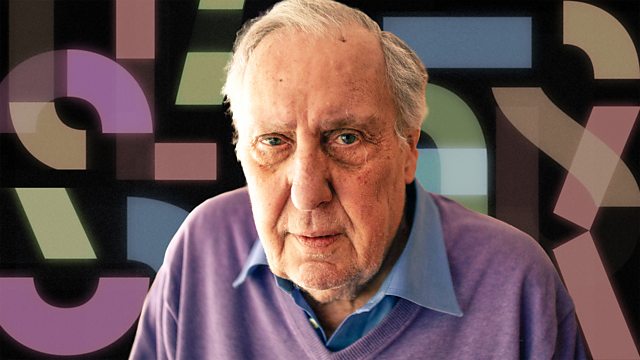
Frederick Forsyth
In this intimate, candid and compelling documentary, legendary British thriller writer Frederick Forsyth tells his extraordinary life story in his own words.
In this intimate, candid and compelling documentary, legendary British thriller writer Frederick Forsyth tells his extraordinary life story in his own words.
From behind the desk in his study, the film opens with Forsyth recalling a near-death experience from his time covering an African war - removing a bullet that narrowly missed him, now kept as a memento. It is a striking metaphor for a life shaped by daring choices, improbable turns and the kind of adventures most people only read about in spy fiction.
Forsyth, author of such iconic novels as The Day of the Jackal, The Odessa File and The Dogs of War, revisits a life that saw him become the youngest ever RAF pilot, a Reuters foreign correspondent, ÃÛÑ¿´«Ã½ reporter and MI6 informant.
His story begins in wartime Ashford, Kent, where Forsyth grew up as an only child under the roar of Spitfires battling the Luftwaffe above his garden. Young Forsyth won a scholarship to Tonbridge School, only to find himself the victim of relentless class-based bullying. He found solace in flying lessons taken in secret, soaring above the Medway Estuary in a Tiger Moth before returning to school.
Turning his back on university and a more conventional future, Forsyth joined the Royal Air Force. Though he earned his wings to the delight of his proud father, his dreams of flying supersonic jets were dashed, and he left the RAF rather than settle for a desk job.
With few prospects but filled with curiosity and a desire to see the world, Forsyth stumbled into journalism, eventually landing at Reuters. His career quickly moved into international reporting, from an early assignment in Paris to months spent behind the iron curtain in East Berlin. In Paris, he reported on far-right plots to assassinate President Charles de Gaulle. In East Germany, he was shadowed and bugged by the Stasi. With humour and insight, he recalls both the absurdity and the danger of being a western journalist behind the wall.
His journalistic career reached a turning point when he was sent to cover the Nigerian Civil War in Biafra for the ÃÛÑ¿´«Ã½. What he found there shocked him profoundly: humanitarian catastrophe, brutal conflict and government propaganda. Forsyth ultimately resigned in disagreement over the ÃÛÑ¿´«Ã½â€™s editorial line, returning to Biafra on his own terms, this time with a second purpose – covertly reporting for MI6.
Forsyth returned to London broke, disillusioned and adrift. Then came the idea that changed everything. Drawing on his time in Paris, he came up with the plot for The Day of the Jackal, a novel about an international assassin contracted to kill Charles de Gaulle. Written in just over a month, the book became a global sensation that would ultimately make Forsyth a millionaire almost overnight.
Forsyth was offered a three-book deal and set about researching his follow-up novels with characteristic rigour. The result was back-to-back bestsellers, film adaptations and a growing reputation as the master of the modern thriller. Forsyth explains how he grounded his stories in meticulous real-life detail, aided by deep research and, in some cases, shadowy contacts. For The Odessa File, he went undercover, posing as a young neo-Nazi to infiltrate far-right networks in Germany.
With fame and fortune came a complicated personal life, as marriages, fatherhood and divorce unfolded alongside his literary triumphs.
The film delicately explores Forsyth’s vulnerabilities - his struggles with solitude, his brush with financial ruin after being conned by fraudster Roger Levitt, and his deeply emotional relationship with his late father. Moments of quiet grief surface as he speaks of the day his father died, and more recently, losing his beloved wife Sandy, who passed away while the film was in production.
As Forsyth attends the premiere of a new adaptation of The Day of the Jackal shortly after his wife's death, we see a man who is reflective but not regretful, now exhausted by the flashes of the paparazzi and theatre of the red carpet. Back home, he shares the resting place of Sandy’s ashes beneath a willow tree in his garden, marking the depth of a love lost and the start of a new chapter.
Now in his late 80s, Forsyth claims to be retired, though not for the first time. With humour and grit, he admits he still has one story left to tell. The documentary ends as it began - with Forsyth at his desk, this time firing up his typewriter and typing the words 'Chapter One'.
Told with characteristic wit, emotional honesty and imbued throughout with vivid, unseen archive, this documentary is more than a portrait of a best-selling author. It is the story of a man who lived his novels – a witness to history and a master storyteller, whose truth is often just as gripping as his fiction.
Shortly after completing this film, Frederick Forsyth died at his home at the age of 86, following a brief illness.
On TV
Credit
| Role | Contributor |
|---|---|
| Featured Artist | Frederick Forsyth |
Broadcasts
- Next Tuesday 22:40ÃÛÑ¿´«Ã½ One except Northern Ireland & Northern Ireland HD
- Next Tuesday 23:20ÃÛÑ¿´«Ã½ One Northern Ireland & Northern Ireland HD only
